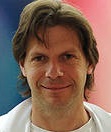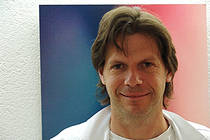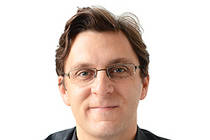
 MEP Charles Goerens, rapporteur on Ebola to the European Parliament’s Committee on Development, recently declared in a European Council meeting that this epidemic is “the first major international crisis in which the lead should be given to an NGO [non-governmental organisation]—in this case, Médecins Sans Frontières.”
MEP Charles Goerens, rapporteur on Ebola to the European Parliament’s Committee on Development, recently declared in a European Council meeting that this epidemic is “the first major international crisis in which the lead should be given to an NGO [non-governmental organisation]—in this case, Médecins Sans Frontières.”
Given that we have repeatedly called for greater leadership from the international community, including the European Union, this proposal took us by surprise. We have interpreted this appeal, coming from an MEP who has also publicly criticised the inadequate reactions of European states in the face of the epidemic, as a symptom of the failure of existing public response mechanisms and, even more so, of the huge collective difficulty in taking action.
When a disaster occurs—whether an epidemic, a natural disaster, or any other event with similar effects—the primary responsibility for helping the victims as quickly as possible and minimising the impact on society falls on the affected states. Because public authorities are in the frontline for initiating and managing the emergency response, the legitimacy to act can only lie with governments and their collective institutions, as embodied by the United Nations. Not addressing a critical health crisis, and therefore abstaining from coordinating healthcare for entire populations, would represent utter failure on behalf of states and international institutions whose mandate it is. Such a vacuum would be as worrying as it would be politically unacceptable.
In the fight against a virus as dangerous as Ebola, which is affecting several countries and hundreds of thousands of people, governments have to step outside their traditional comfort zones. Their response cannot be merely a “damage control” exercise. The role of the United Nations is to protect the populations concerned—humanity—against a deadly collective danger through effective international cooperation.
In west Africa, in recent months, we have been witness to the non-existence of instruments and mechanisms capable of developing a rapid, effective, and proportional response able to deal with the scale of an international health crisis. Despite multiple warnings and the declaration (albeit belatedly) of a state of emergency by the affected countries and the World Health Organization (WHO), the international community only recently started to put together a suitable operational response.
The creation of the UN Mission for Ebola Emergency Response (UNMEER), the UN’s very first emergency health mission, had to be improvised all the way. Only time will tell whether it will fulfil the expectations of millions of west Africans, but the human cost of the initial lack of collective responsibility will have been—and will continue to be—considerable.
MSF—a private medical and humanitarian organisation—can certainly make a substantial contribution to medical and operational leadership by continuing its work on the ground, sharing its expertise and experience, taking part in the development of strategies to contain the epidemic more effectively, and encouraging other actors to increase their level of assistance. However, we cannot, and simply should not, replace governments in assuming their responsibilities on public health.
Ironically, until the European Council meeting, even the most basic demands made by MSF to the European Union and other countries—such as the organisation of medical evacuations for infected humanitarian workers—had gone unanswered for many long months. Consequently, hundreds of committed doctors and nurses went out into the field without knowing for certain whether they would be able to return home if they became contaminated.
If it takes months to reach decisions on simple requests, how can we expect the thousands of hospital beds, the hundreds of ambulances needed, and all the other numerous medical and non-medical services to be quickly mobilised across three countries? Decisions about the deployment of additional resources might not start to have a lasting impact on the situation in west Africa until next year. A lack of preparation, a lack of responsiveness, an initial lack of political will . . . the system failed.
Yet there are also some truly encouraging signs: although we should remain cautious, initial efforts are starting to produce positive results in Liberia. This progress should allow more attention to be focused on decentralising medical care given to Ebola patients, on interventions in rural areas, and on getting an effective health system up and running again for the treatment of all other illnesses.
MSF has neither the legitimacy, nor the skills, nor the desire to take on the political leadership of the Ebola crisis in west Africa. We will continue to care for patients, as that is our core role and the challenge remains huge. And, in view of the disengagement that has occurred in recent years, we will fight to obtain a radical improvement in the public response mechanisms that exist to address this kind of health crisis. But we refuse to be used as an alibi for the lack of political will to assist the suffering population in west Africa, nor should we help to conceal the lack of preparedness and reactivity of the international community.
 Thomas Nierle, MD joined MSF in 1997 and currently is the chairman of the board of MSF Switzerland. He is also chief physician of the internal medicine and emergency department of Moutier hospital.
Thomas Nierle, MD joined MSF in 1997 and currently is the chairman of the board of MSF Switzerland. He is also chief physician of the internal medicine and emergency department of Moutier hospital.
Competing interests: None declared.
 Bruno Jochum has been general director of MSF Switzerland since 2011. He has worked in medical humanitarian aid since 1993.
Bruno Jochum has been general director of MSF Switzerland since 2011. He has worked in medical humanitarian aid since 1993.
Competing interests: None declared.
A version of this was published in Le Temps on 31 October 2014.
